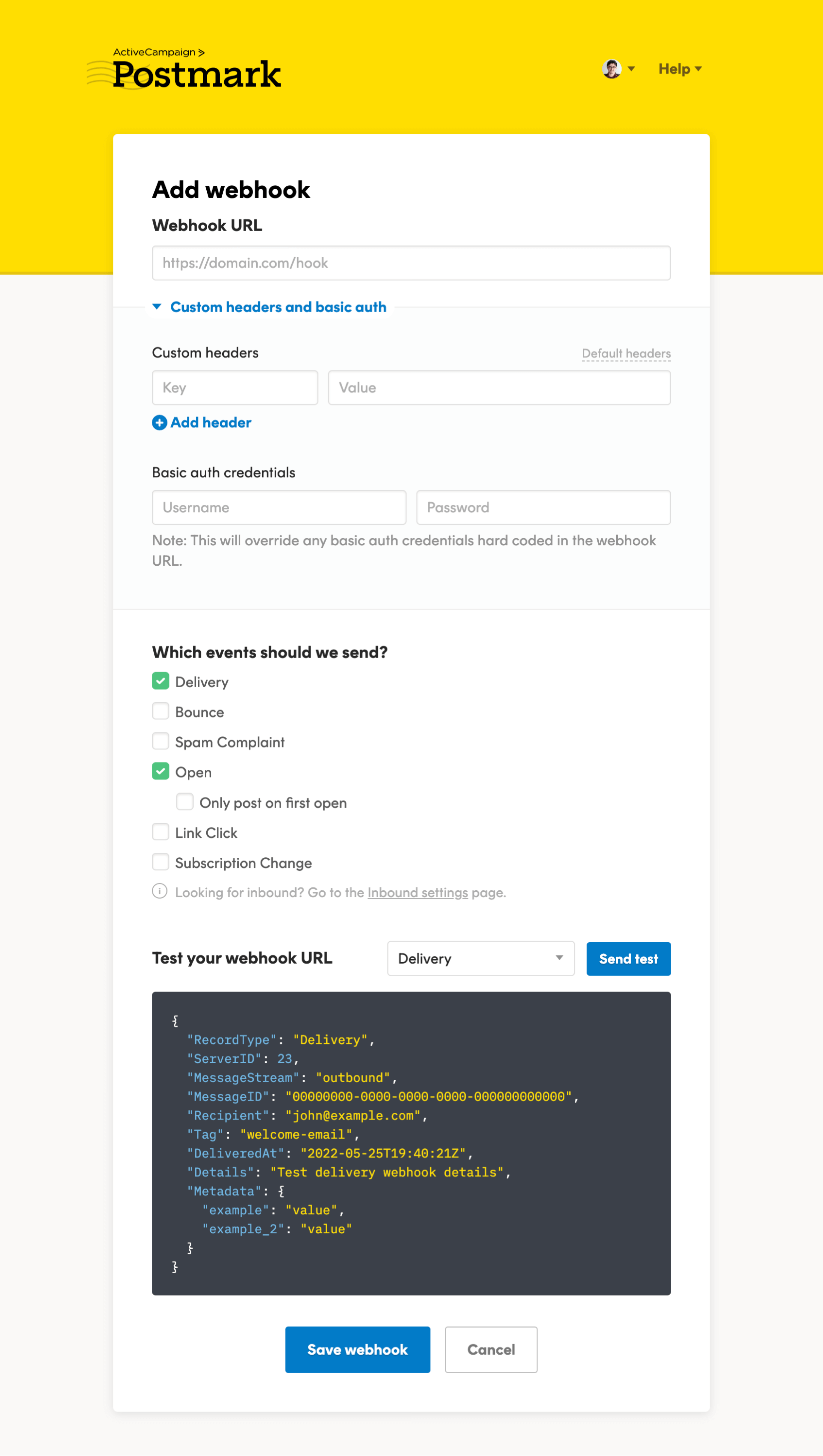Fine-grained control with modular webhooks.
Postmark’s webhooks notify your application about key message events such as bounces, deliveries, opens, clicks, and spam complaints. Each request contains a JSON object with information about the event.
You have detailed control over which message events get sent to each of your webhook URLs. Add up to 10 different URLs and secure them using HTTP Auth.



